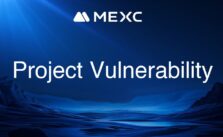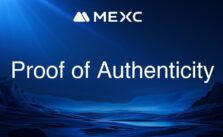Private Key
A private key in cryptography is a secret number that allows a user to access their cryptocurrency securely. It is essential for signing transactions and maintaining ownership over digital assets. Recent trends in the cryptocurrency market underscore the critical importance of private keys. For instance, the rise in decentralized finance (DeFi) platforms has increased the...
Private Key Encryption
Private Key Encryption, also termed symmetric encryption, is a form of encryption where the same key is used for the encryption and decryption of the message. This encryption technique is critical in maintaining the confidentiality of the transmitted information while ensuring effective communication. In recent years, with the rise of digital communication and the need...
Private Sale
A "Private Sale" refers to a transaction where securities, assets, or tokens are sold directly to a select group of investors rather than through a public offering. This type of sale is typically used by startups and companies to raise funds before they are publicly traded or listed on exchanges. Recent data indicates that private...
Programmable Rollups
Programmable Rollups refer to a type of layer 2 scaling solution for blockchains that allow for customizable computation and execution of smart contracts off the main chain, while still leveraging the security of the main chain. This technology is designed to enhance scalability and efficiency in blockchain networks by handling transactions on a separate layer...
Prohashing
Prohashing is a multi-cryptocurrency mining pool that pays miners in any coin. It is a profit-switching sha-256 and scrypt mining pool that uses a system to identify the most profitable coins to mine and pays out daily in any coin of your choice. Prohashing: A Brief Overview Prohashing was launched in 2014 by two brothers,...
Project Vulnerability
Project vulnerability refers to the inherent risks and weaknesses within a project that could potentially lead to its failure or underperformance. These vulnerabilities can stem from a variety of sources including technological failures, financial constraints, regulatory changes, or market dynamics. Identifying and managing these vulnerabilities is crucial for the success and sustainability of any project....
Proof of Authenticity
Proof of Authenticity refers to the verification process or mechanism that confirms the genuineness of an item, asset, or digital entity, ensuring that it is not counterfeit or duplicated without authorization. This concept is pivotal in various sectors, including art, collectibles, digital media, and cryptocurrencies, where the authenticity of an item directly impacts its value...
Proof of History (PoH)
Proof of History (PoH) is a consensus mechanism used in blockchain technology that helps to create a historical record that proves that an event has occurred at a specific moment in time. This mechanism is crucial for enhancing the efficiency and scalability of blockchain networks by reducing the need for extensive communication and confirmation between...
Proof of Knowledge
Definition of Proof of Knowledge Proof of Knowledge is a cryptographic protocol designed to demonstrate that a party possesses certain information without revealing the information itself. This concept is pivotal in enhancing security and privacy in digital communications and transactions. Recent Developments and Examples Recently, Proof of Knowledge has gained traction in various sectors, particularly...
Proof of Stake (PoS)
Proof of Stake (PoS) is a consensus mechanism used by blockchain networks to validate transactions and secure the network. Unlike its predecessor, Proof of Work (PoW), PoS achieves consensus through validators who stake their cryptocurrency as collateral to endorse and validate new transactions. Evolution and Mechanism of Proof of Stake The concept of Proof of...
Explore the MEXC Blog Glossary Archive to deepen your understanding of cryptocurrency and blockchain technology. This comprehensive resource features clear, easy-to-understand definitions of key crypto-related terms, concepts, and industry jargon. Whether you’re a beginner or an experienced trader, the glossary helps you stay informed, make smarter investment decisions, and navigate the fast-evolving crypto landscape with confidence. Start learning today and boost your crypto knowledge with MEXC!


